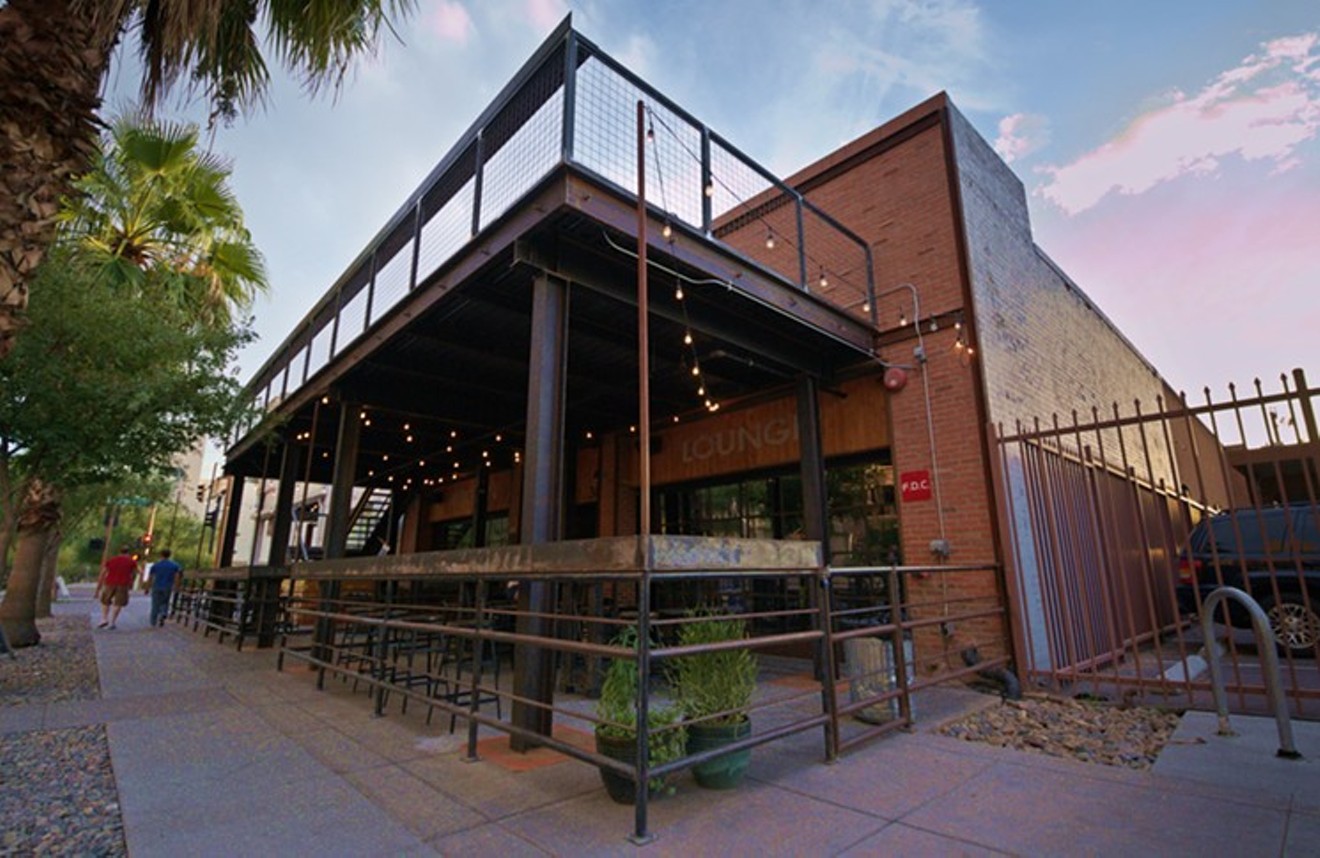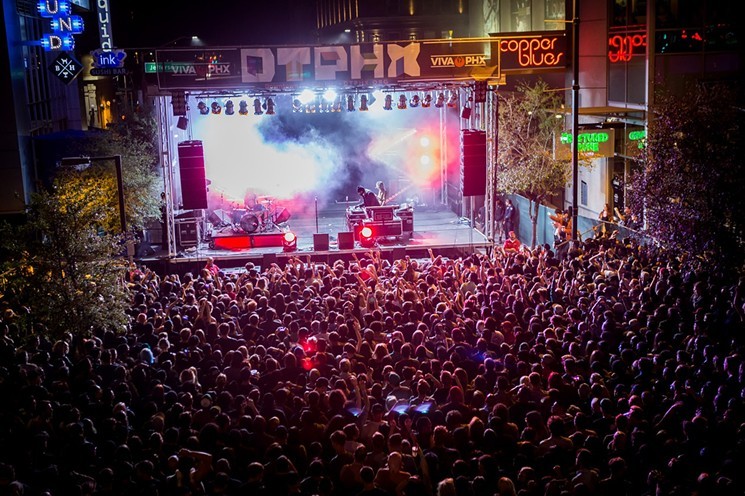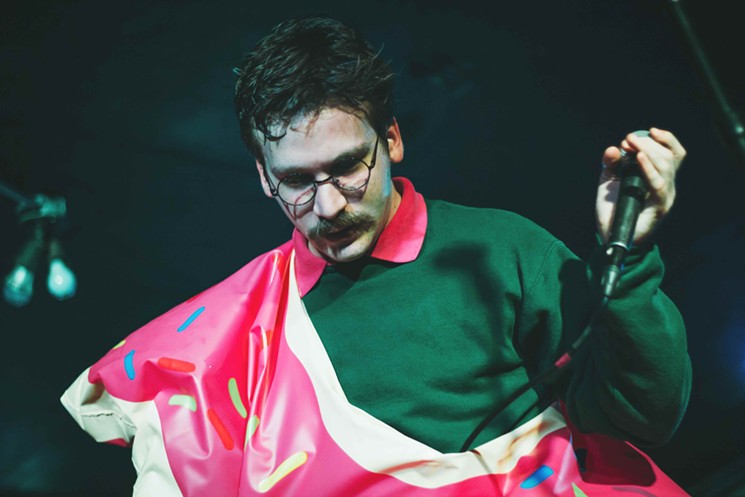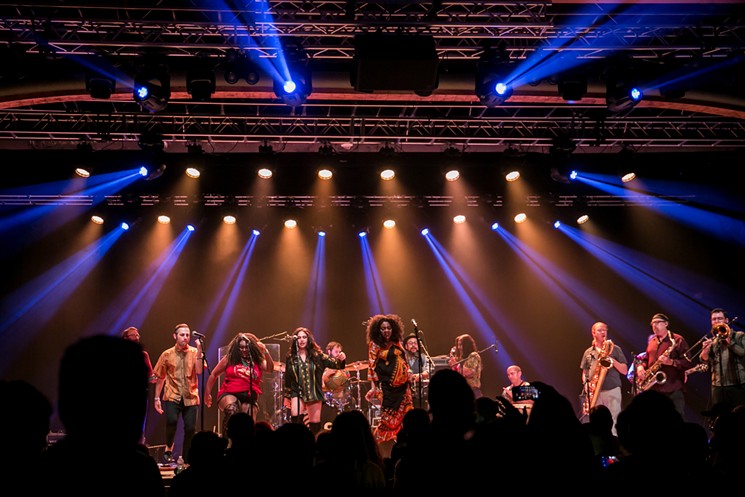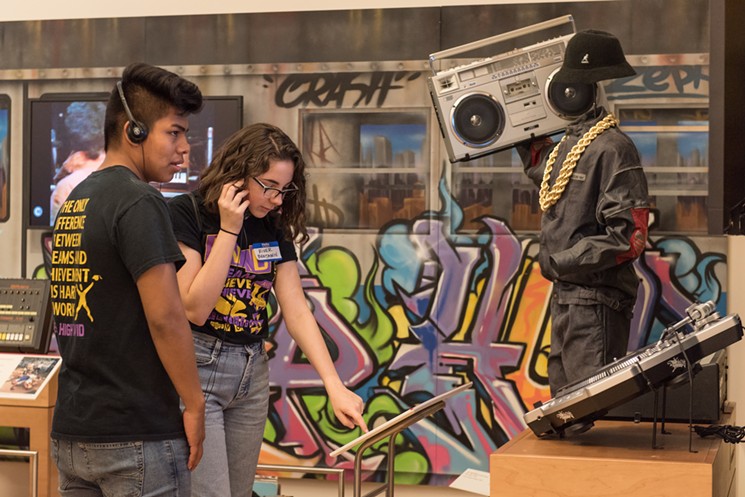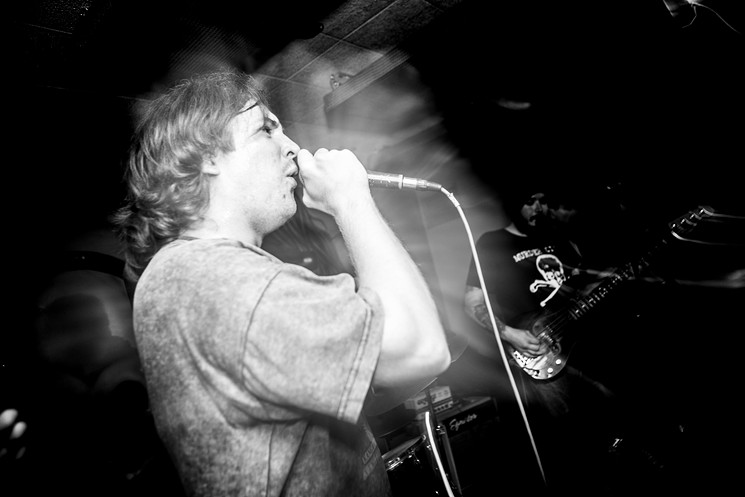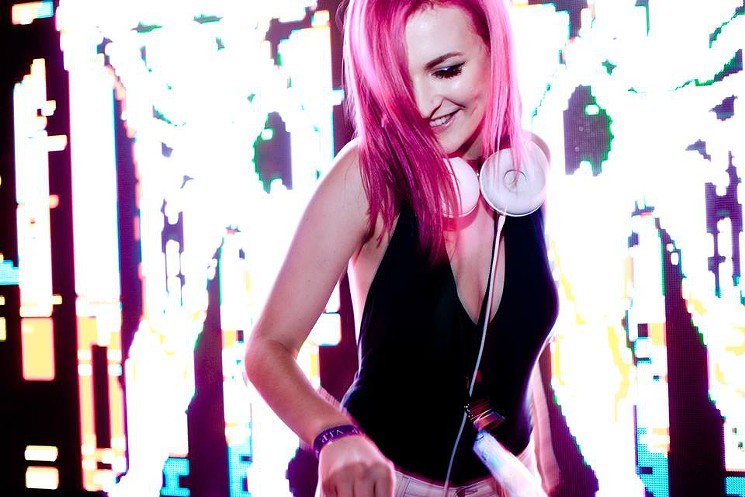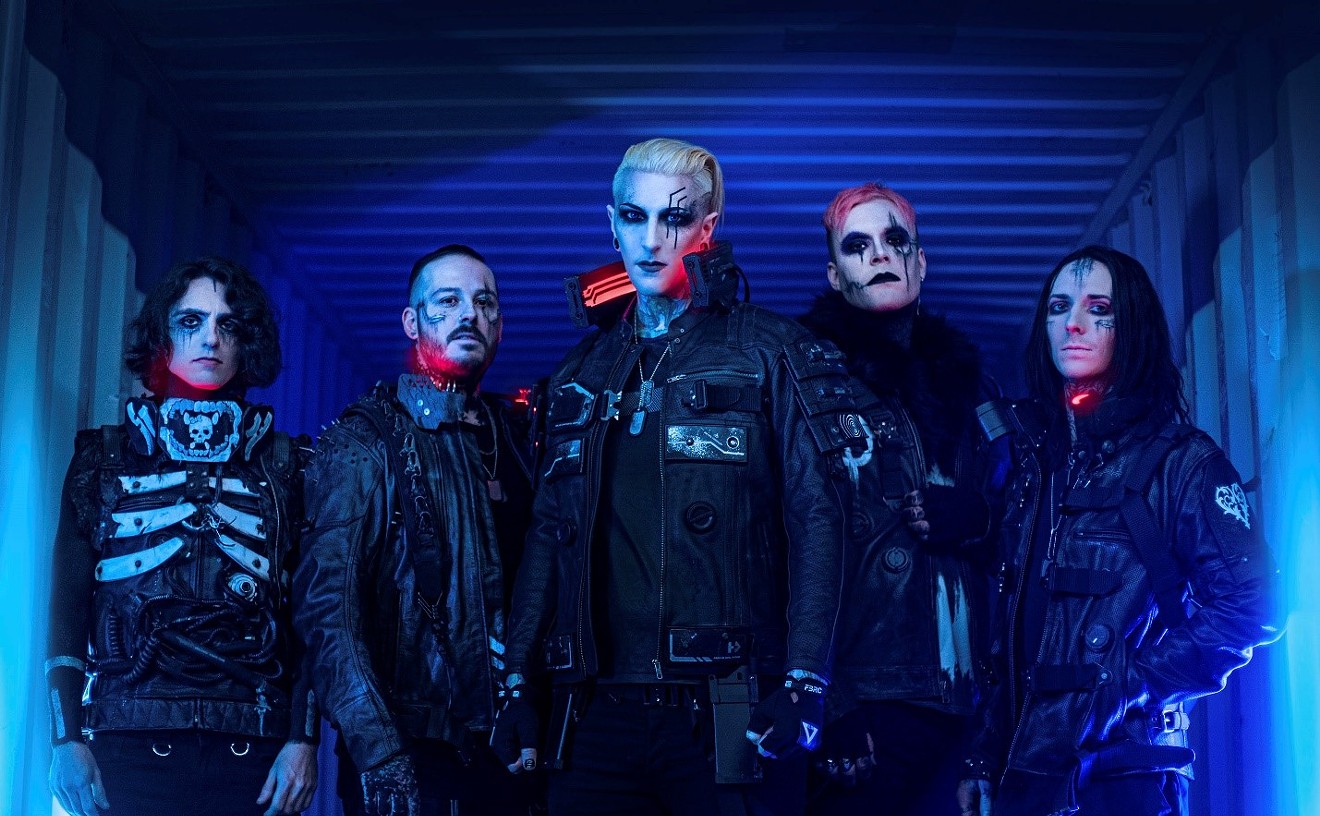We asked some local musicians, bookers, and other artists what they thought were the biggest things that happened (or didn’t) in the Valley music scene during the last decade. Some of them are obvious, but there were a few moments that inspired artists to think bigger about what music can be in Arizona. The theme running through all of their answers is change, which means the next decade is looking bright for local music lovers. Comments have been edited for length and clarity.
Stephen Chilton
Owner of The Rebel Lounge and Psyko Steve PresentsI think Crescent Ballroom opening in 2011 was one of the biggest events of the decade. It was just the right moment to do it. The whole center of gravity started shifting to downtown [Phoenix] in a big way, and Crescent was one of the turning points for live music. Before then, there were only smaller venues like Trunk Space, Modified Arts, The PHiX, and The Lost Leaf in downtown [Phoenix], and bands were playing more in Tempe and Scottsdale. It was hard to get anyone downtown for anything, and only niche music fans would go there for shows. After they announced the Crescent, two out of three people would ask me, “Why are they opening it in downtown? It’s never going to work.” But once Crescent opened, suddenly you had every local band wanting to do their release show there. Years later, when Valley Bar and The Van Buren opened, no one was questioning it. Benjamin Leatherman
Jim Andreas
No VolcanoCrescent Ballroom started it off, and Trunk Space had all-ages [shows] and more of an art space. I guess we have to say that Modified Arts really laid the groundwork, even though that was before this decade. But without Modified Arts, I don’t think we would have the downtown scene we have now. [Then there are] all the festivals. Viva PHX was awesome. We played it twice, and it was great to be a part of and just be at. I wish that would have continued. Tom Reardon
Stephanie Carrico
Co-founder of The Trunk SpaceIt seems like the music scene has worked to be more inclusive. I feel like there has been more inclusion in the all-ages scenes, but it feels like people are even more conscientious of it now.
I thought Okilly Dokilly going viral before they ever played a show was pretty wild. A really interesting result of the existence of social media. Ashley Naftule
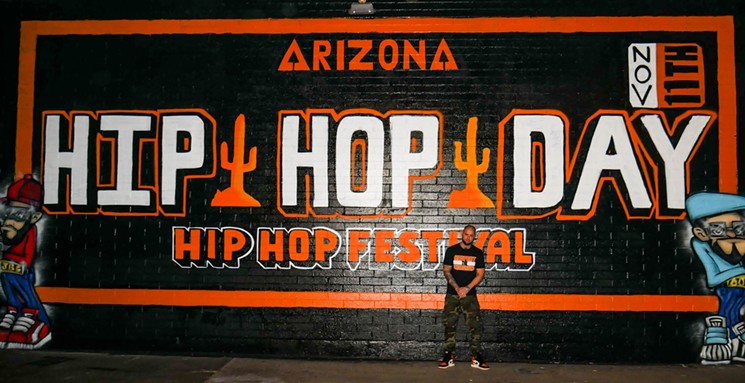
A mural in downtown Phoenix promoting Arizona Hip Hop Day and the Arizona Hip Hop Festival 2017.
Justus Samuel
Mega Ran
Local Hip-Hop ArtistIf you’re talking the biggest local hip-hop moment this decade, the Arizona Hip Hop Festival has to be mentioned. For a long time, Phoenix was a running joke, a place where hip-hop couldn’t survive. There’s that saying, “The squeaky wheel gets the grease.” For a long time, other things got attention before the music scene. I think we would have still survived [without the festival], but we needed a guy like Justus [Samuel, promoter], a visionary for the scene to get people to look at hip-hop in Phoenix. I definitely think it’s been a combined effort to show what hip-hop can be out here. You don’t have to be a Jay-Z. But we’ve come such a long way — I didn’t see it coming. Chris Coplan
Camille Sledge
Phoenix Afrobeat OrchestraI actually feel that the music scene didn’t show up for the massive amount of police killings that happened. Nationwide, Arizona leads the country in the highest numbers of all. Music, to me, is a vast vehicle that can move mountains. We have a power that many of us musicians do not exercise. AN
Grace Perry
Gracie’s Tax Bar and former lead singer of Landmine MarathonI wanted to say Crescent Ballroom, but the Musical Instrument Museum ties in with how nerdy I am. My mom raised me going to every museum growing up, and now we’re able to bring my nieces. This place just brought me to tears. Not just the collection, but the sheer variety is on such a global scale. And to see instruments from people I grew up worshiping, just one inch away, was so huge. Musicians in my generation, people in their 30s, being able to share all that with a younger generation is just amazing. Being able to help build on the culture of Phoenix is important, and the MIM is just a huge bonus. CC
A Claire Slattery
Local DJ and Curator of The Vanishing ShowIn 2013, Robbie Pfeffer [and Gage Olesen] launched Rubber Brother Records, this cassette-only label, that, over the course of a year, released like 50 different tapes. They also opened a DIY venue called Parliament, this Tempe warehouse space, and put on a ton of shows for their catalog of bands, like Playboy Manbaby, Boss Frog, or Instructions. They also had these one-off “Round Robin” shows where five bands would set up at random places throughout the room and rotate playing two songs at a time. It was fun and different. Then one day: Poof! Gone! The landlord didn’t renew their lease. It was a blip in time, but it was really inspiring to see that even in that blip, you have the opportunity to put something out there. And everyone celebrated it. Watching people like Robbie do their own thing helped inspired stuff like The Vanishing Show in some way. Phoenix is one of those places where it is what you make it. BL
Emilie Fromm (a.k.a. Blossom)
Local DJThere’s been an EDM boom happening in Phoenix in the last decade. An EDM boom everywhere, actually, but things have really changed a lot here. I first started listening to EDM in high school in 2010 when dubstep started having its moment, which kicked things off with Skrillex and everything. And that’s when things started blooming. There were like one or two big shows a month before and more local stuff. Then, you saw a huge boom as Relentless Beats and other promoters started doing bigger shows, bigger events, and festivals. And there were more opportunities for local DJs to get their names out there, which was great. I went to a few festivals and warehouse raves. And now it’s really profitable because so many people are interested in EDM. So there’s a huge market for it in our city. Relentless Beats is throwing three or four shows a weekend now. It’s crazy with how popular EDM has become. BL
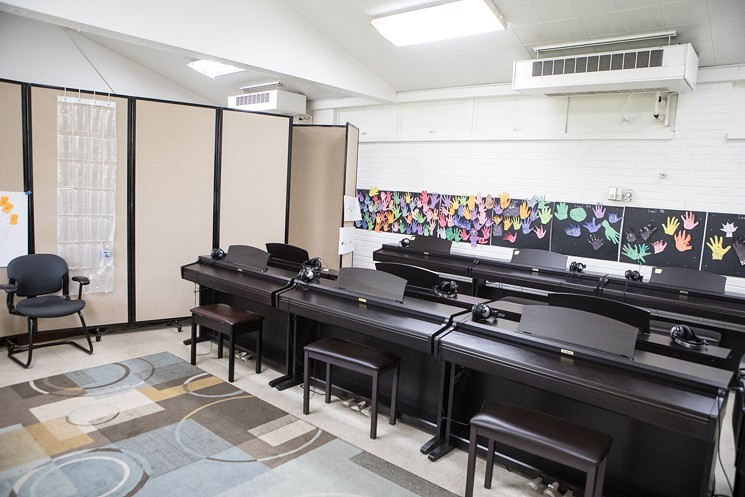
Rosie's House is a free, afterschool music academy dedicated to serving children from economically disadvantaged backgrounds.
Jim Louvau
Kimber Lanning
Owner, Stinkweeds and Modified ArtsFounder, Local First AZ
We’ve seen a significant passion for arts education in the community during the last decade. The growth of Rosie’s House and what they’re doing to train young kids in mariachi and classical music is really unprecedented. Also, Arizona School for the Arts is normalizing choosing a career in music, which helps Phoenix develop and retain young musicians. That’s a game-changer for the future of Arizona, because the arts can help build a higher quality of life for all people. Arts education builds smarter kids and problem-solvers, and it increases tolerance and compassion. Other groups have made a difference during the last decade as well, including Phoenix Center for the Arts and Valley Youth Theatre. We definitely need more investment in the arts, but these groups are shining examples of the ways arts education can change lives. Lynn Trimble

